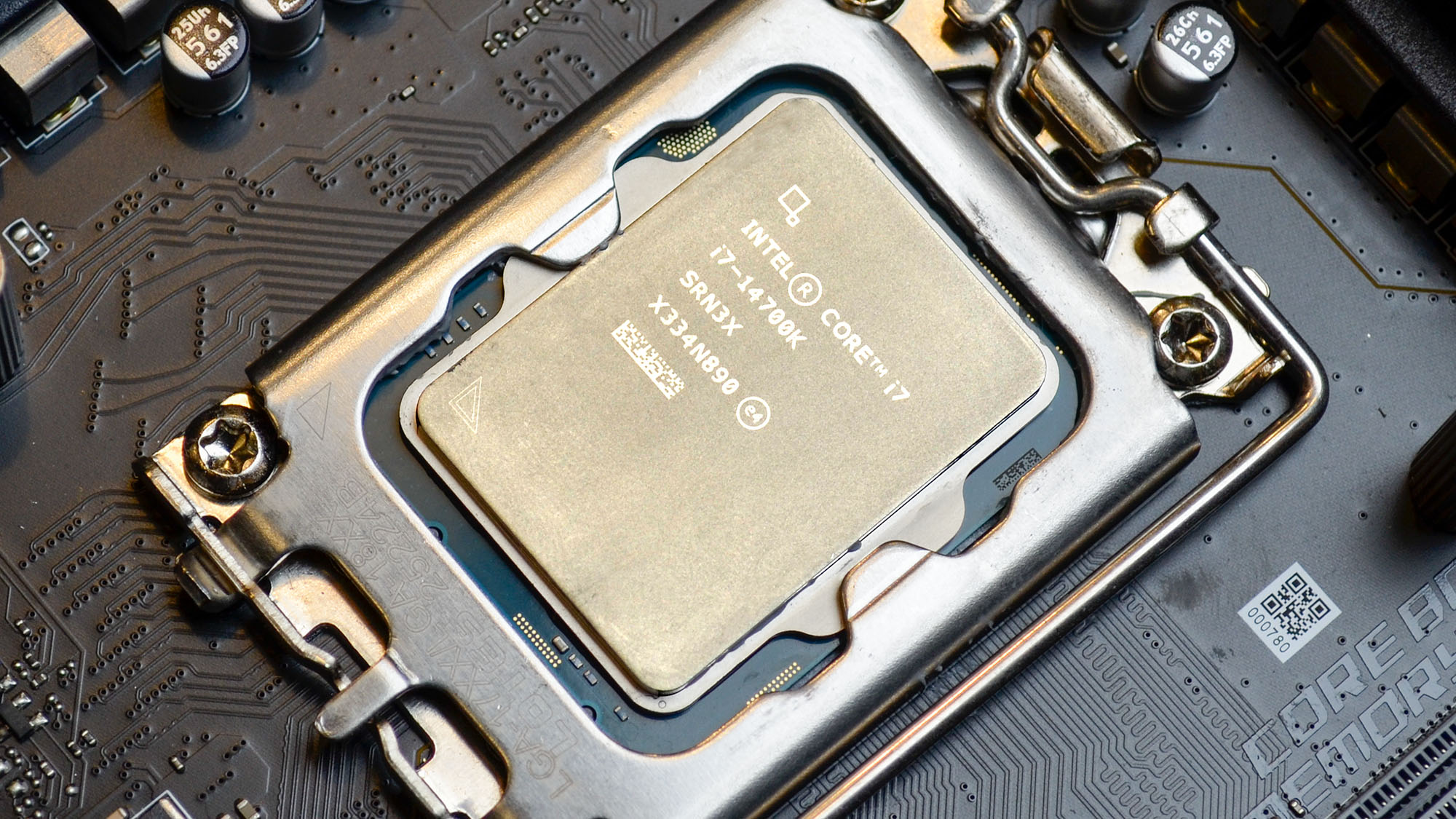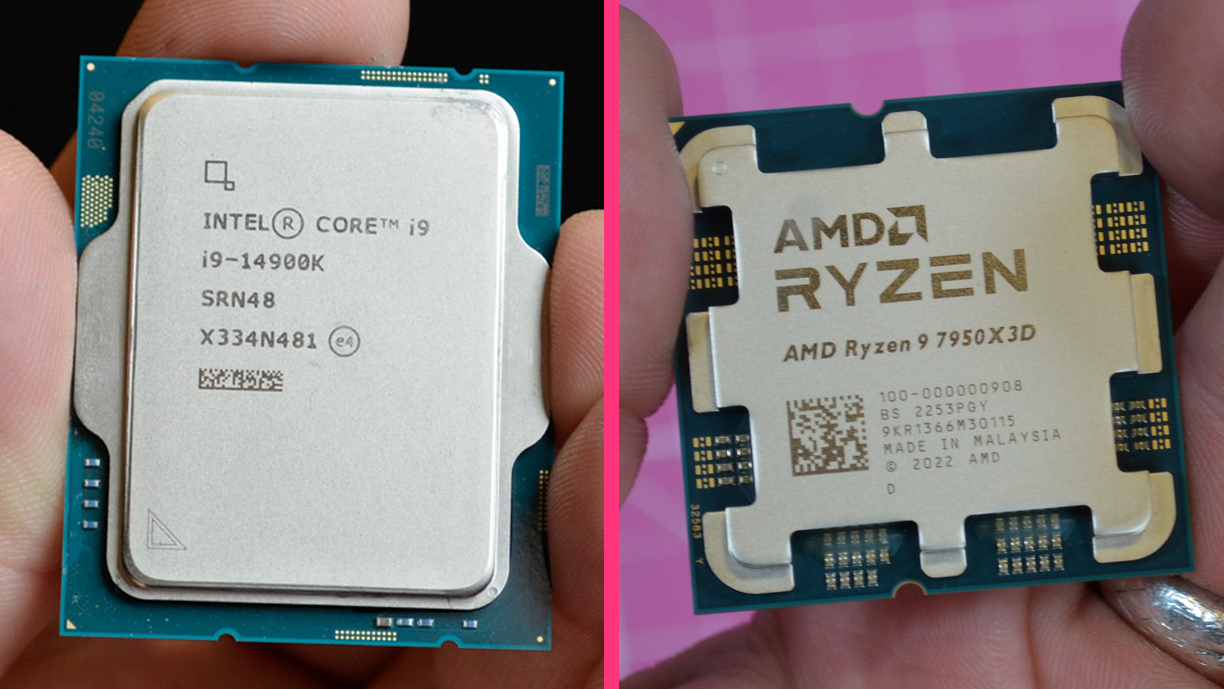Intel’s next-gen CPUs might confuse you with their names – but whatever Arrow Lake is called, it’ll face a tough fight against AMD Zen 5
Say hello to the Intel Core Ultra 9 285K, perhaps…

Intel’s Arrow Lake processors are inbound for desktop PCs and should land later this year, and we’ve just caught a leak about how these chips might be named.
This comes from one of the more regular leakers on X (formerly Twitter), and as ever, sprinkle a whole lot of seasoning on the claims.
The theory from leaker Raichu (via VideoCardz) is that the first launches for Arrow Lake will be the 285K, 265K, and 245K – which should be the equivalent of the Core i9, Core i7 and Core i5 CPUs from the current-gen range (Raptor Lake Refresh).
So, the initial Arrow Lake CPU names could run as follows:
- Core Ultra 9 285K
- Core Ultra 7 265K
- Core Ultra 5 245K
After that, the non-K releases (meaning locked processors, ones that can’t be overclocked, unlike K chips) won’t use the same number – as has previously been the case, where the ‘K’ is simply dropped (14900K, 14900). These will be named entirely differently as the Core Ultra 275, 255, and 240 (VideoCardz theorizes those would be Core Ultra 7 and Core Ultra 5 models).
There’s a further suggestion that we could get a Core Ultra 9 290K later on, which would be the equivalent of the ‘KS’ limited edition chips (14900KS).
The battle of the next-gen CPUs begins to take shape

If this is what happens, are these new names confusing? Well, they’re bound to sow some bewilderment among buyers initially, no doubt. For desktop CPUs, this represents a big change from the typical 14900K, 14700K and so on that we’ve been used to for a long time now.
Sign up for breaking news, reviews, opinion, top tech deals, and more.
However, these names do make sense based on the naming scheme for Meteor Lake (laptop) CPUs, and it’s fully expected that Intel will shift over to its Core Ultra branding across all chips, not just those for laptops.
At any rate, while the names may change, and confusion may be rife for some, the underlying core specs shouldn’t. With next-gen Arrow Lake desktop processors, the top die should still run with 8 performance cores and 16 efficiency cores, as is the case with Raptor Lake Refresh (and all recent generations).
As per another recent rumor, the other main die Intel will base Arrow Lake CPUs on has six performance cores plus eight efficiency cores – there’ll be a bunch of variants on both of these dies, as ever.
Arrow Lake seems to be in a bit of a strange place at the moment. Earlier leaks certainly suggested that these next-gen CPUs are going to be a massive performance leap for Intel – although that hype has died down somewhat (although it’s still far from extinguished).
What has surfaced more recently is doubts that Intel will get Arrow Lake out in a timely manner this year, with the prospect raised that these desktop CPUs may not hit the shelves until the very end of 2024.
The problem for Intel in that eventuality is that AMD’s Zen 5 processors could be out in Q3, if other rumors pan out, and that might mean these next-gen Ryzen CPUs – which are also expected to be a healthy step forward, performance-wise – are going to be given the space to really dominate for some time.
Especially if Arrow Lake volume is wonky to begin with, as other speculation has indicated, and Zen 5 (Ryzen 9000) is more affordable. With all that considered, AMD could be in a prime position to threaten Intel’s places in our ranking of the best CPUs. Add your own skepticism here, naturally, but that’s the way things look to be shaping up now.
The glimmer of positivity here is that with the naming scheme being spilled, perhaps this is an indication that Intel’s Arrow Lake CPUs aren’t as far off as some leakers seem to believe. Be even more cautious around that prospect, but still – we need all the good vibes around Arrow Lake that we can get, frankly. The keener the competition between these next-gen desktop processor ranges, the better things should be for the consumer, ultimately.
You might also like
Darren is a freelancer writing news and features for TechRadar (and occasionally T3) across a broad range of computing topics including CPUs, GPUs, various other hardware, VPNs, antivirus and more. He has written about tech for the best part of three decades, and writes books in his spare time (his debut novel - 'I Know What You Did Last Supper' - was published by Hachette UK in 2013).